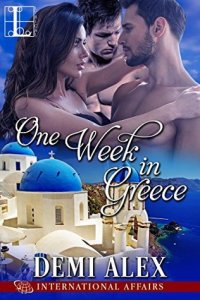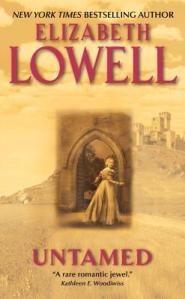Eliana is a model citizen of the island, a weaver in the prestigious House of Webs. She also harbors a dangerous secret—she can dream, an ability forbidden by the island’s elusive council of elders. No one talks about the dreamers, the undesirables ostracized from society.
But the web of protection Eliana has woven around herself begins to unravel when a young girl is found lying unconscious in a pool of blood on the stones outside the house. Robbed of speech by her attackers, the only clue to her identity is one word tattooed in invisible ink across her palm: Eliana. Why does this mysterious girl bear her name? What links her to the weaver—and how can she hold Eliana’s fate in her hand?
Review:
I picked up The Weaver thinking it was perfect for Women in Translation Month… but it looks like the author rewrote her own book in English, so I don’t think it counts.
Things starts off great – an interesting world doled out in manageable chunks! An easy-to-like character that’s caught up in Happenings! A mystery with a sure to be gruesome villain!
But as much as I like the beginning the book stalls. It’s not the plot, exactly, or the character development, but the lack of love given to the world they’re inhabiting. The what is lovingly explained, but Eliana’s lack of interest in the why means we don’t get many answers. Who are the people who came to this island, and what drove them to make such segregated groups? Why does the council have such power, and where did that power come from? Ships travel between the island and other places, so what holds the inhabitants here? And so on. The ground level world building is solid enough, but there’s little added to that foundation.
I like that there’s a main female/female relationship and the fact that it’s f/f doesn’t raise any eyebrows. A side character is gender queer/fluid/trans, perhaps, but it’s barely examined so I don’t want label them.
While the set up and idea are interesting when more depth is required we find ourselves stuck in an ill-woven web.

 Marin County, California is a study in contradictions. Its natural beauty attracts thousands of visitors every year, yet the county also is home to San Quentin Prison, one of the oldest and largest penitentiaries in the country. Marin ranks in the top one percent of counties nationwide in terms of affluence and overall health, yet it is far above the norm in drug overdoses and alcoholism, and comprises a large percentage of suicides from the Golden Gate Bridge.
Marin County, California is a study in contradictions. Its natural beauty attracts thousands of visitors every year, yet the county also is home to San Quentin Prison, one of the oldest and largest penitentiaries in the country. Marin ranks in the top one percent of counties nationwide in terms of affluence and overall health, yet it is far above the norm in drug overdoses and alcoholism, and comprises a large percentage of suicides from the Golden Gate Bridge. Bethany Michaels is headed to the sun-bleached island of Mykonos on business, not pleasure. But an unexpected face from the past will introduce her to a brand-new desire . . .
Bethany Michaels is headed to the sun-bleached island of Mykonos on business, not pleasure. But an unexpected face from the past will introduce her to a brand-new desire . . . Bernadette Fox is notorious. To her Microsoft-guru husband, she’s a fearlessly opinionated partner; to fellow private-school mothers in Seattle, she’s a disgrace; to design mavens, she’s a revolutionary architect, and to 15-year-old Bee, she is a best friend and, simply, Mom.
Bernadette Fox is notorious. To her Microsoft-guru husband, she’s a fearlessly opinionated partner; to fellow private-school mothers in Seattle, she’s a disgrace; to design mavens, she’s a revolutionary architect, and to 15-year-old Bee, she is a best friend and, simply, Mom.
 Katie Grady left Diablo Lake to get over a humiliating breakup; but her family needs her help, so she’s back, in a sublet right across the hall from the guy she’s lusted after for years. Jace Dooley is hotter than ever, and their friendship picks up along with massive doses of grown-up chemistry.
Katie Grady left Diablo Lake to get over a humiliating breakup; but her family needs her help, so she’s back, in a sublet right across the hall from the guy she’s lusted after for years. Jace Dooley is hotter than ever, and their friendship picks up along with massive doses of grown-up chemistry.
 e by women so this is a time to draw attention to the awesomeness that’s out there and celebrate it. And because it’s a look at marginalized voices transgender and nonbinary authors are included in the mix, huzzah!
e by women so this is a time to draw attention to the awesomeness that’s out there and celebrate it. And because it’s a look at marginalized voices transgender and nonbinary authors are included in the mix, huzzah! Seeing Red
Seeing Red The First Wife
The First Wife
 Mona Lisa St. James made a deathbed promise that she would do anything to save her mother’s art gallery. Unfortunately, not only is The Red painted red, but it’s in the red. She soon realizes she has no choice but to sell it.
Mona Lisa St. James made a deathbed promise that she would do anything to save her mother’s art gallery. Unfortunately, not only is The Red painted red, but it’s in the red. She soon realizes she has no choice but to sell it.